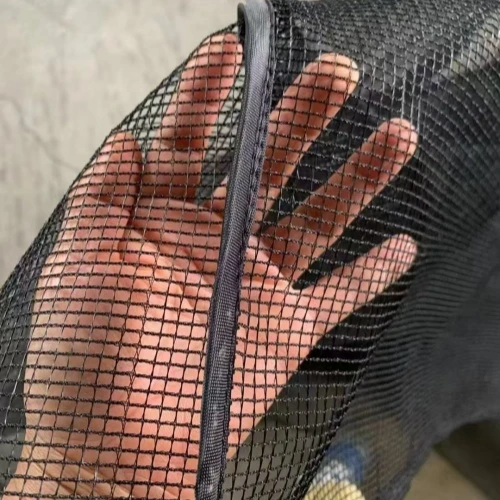-
 Afrikaans
Afrikaans -
 Albanian
Albanian -
 Amharic
Amharic -
 Arabic
Arabic -
 Armenian
Armenian -
 Azerbaijani
Azerbaijani -
 Basque
Basque -
 Belarusian
Belarusian -
 Bengali
Bengali -
 Bosnian
Bosnian -
 Bulgarian
Bulgarian -
 Catalan
Catalan -
 Cebuano
Cebuano -
 China
China -
 Corsican
Corsican -
 Croatian
Croatian -
 Czech
Czech -
 Danish
Danish -
 Dutch
Dutch -
 English
English -
 Esperanto
Esperanto -
 Estonian
Estonian -
 Finnish
Finnish -
 French
French -
 Frisian
Frisian -
 Galician
Galician -
 Georgian
Georgian -
 German
German -
 Greek
Greek -
 Gujarati
Gujarati -
 Haitian Creole
Haitian Creole -
 hausa
hausa -
 hawaiian
hawaiian -
 Hebrew
Hebrew -
 Hindi
Hindi -
 Miao
Miao -
 Hungarian
Hungarian -
 Icelandic
Icelandic -
 igbo
igbo -
 Indonesian
Indonesian -
 irish
irish -
 Italian
Italian -
 Japanese
Japanese -
 Javanese
Javanese -
 Kannada
Kannada -
 kazakh
kazakh -
 Khmer
Khmer -
 Rwandese
Rwandese -
 Korean
Korean -
 Kurdish
Kurdish -
 Kyrgyz
Kyrgyz -
 Lao
Lao -
 Latin
Latin -
 Latvian
Latvian -
 Lithuanian
Lithuanian -
 Luxembourgish
Luxembourgish -
 Macedonian
Macedonian -
 Malgashi
Malgashi -
 Malay
Malay -
 Malayalam
Malayalam -
 Maltese
Maltese -
 Maori
Maori -
 Marathi
Marathi -
 Mongolian
Mongolian -
 Myanmar
Myanmar -
 Nepali
Nepali -
 Norwegian
Norwegian -
 Norwegian
Norwegian -
 Occitan
Occitan -
 Pashto
Pashto -
 Persian
Persian -
 Polish
Polish -
 Portuguese
Portuguese -
 Punjabi
Punjabi -
 Romanian
Romanian -
 Russian
Russian -
 Samoan
Samoan -
 Scottish Gaelic
Scottish Gaelic -
 Serbian
Serbian -
 Sesotho
Sesotho -
 Shona
Shona -
 Sindhi
Sindhi -
 Sinhala
Sinhala -
 Slovak
Slovak -
 Slovenian
Slovenian -
 Somali
Somali -
 Spanish
Spanish -
 Sundanese
Sundanese -
 Swahili
Swahili -
 Swedish
Swedish -
 Tagalog
Tagalog -
 Tajik
Tajik -
 Tamil
Tamil -
 Tatar
Tatar -
 Telugu
Telugu -
 Thai
Thai -
 Turkish
Turkish -
 Turkmen
Turkmen -
 Ukrainian
Ukrainian -
 Urdu
Urdu -
 Uighur
Uighur -
 Uzbek
Uzbek -
 Vietnamese
Vietnamese -
 Welsh
Welsh -
 Bantu
Bantu -
 Yiddish
Yiddish -
 Yoruba
Yoruba -
 Zulu
Zulu
polypropylene sacks
The Versatility and Sustainability of Polypropylene Sacks
Polypropylene sacks, often referred to as PP bags, have gained significant popularity in various industries due to their exceptional durability, versatility, and cost-effectiveness. Made from a thermoplastic polymer, polypropylene, these sacks offer a robust solution for packaging a wide range of products, from agricultural commodities to industrial materials.
One of the primary advantages of polypropylene sacks is their strength. Unlike traditional paper or woven fabric bags, PP sacks are resistant to tearing and puncturing, making them ideal for heavy-duty applications. This toughness is particularly beneficial in agriculture, where farmers use these sacks to store and transport grains, seeds, and fertilizer. The ability to withstand harsh weather conditions further enhances their functionality in outdoor environments.
In addition to strength, polypropylene sacks are lightweight, which reduces transport costs for businesses. Their lightweight nature does not compromise their capacity for holding significant amounts of material. This characteristic is particularly advantageous in sectors such as construction and food distribution, where efficiency in logistics is paramount.
polypropylene sacks

Another noteworthy feature of polypropylene sacks is their moisture resistance
. Unlike paper bags, which can weaken when exposed to water, PP sacks retain their integrity in humid conditions. This quality makes them suitable for storing products that are sensitive to moisture, including agricultural chemicals or animal feed. Furthermore, polypropylene sacks can be printed with vibrant colors and complex designs, allowing businesses to enhance their branding while also providing essential product information.Sustainability is becoming increasingly important in today’s packaging industry, and polypropylene sacks have a role to play. While they are derived from fossil fuels, the recycling potential of polypropylene is considerable. Many manufacturers are now producing PP bags from recycled materials, contributing to a circular economy. Additionally, used polypropylene sacks can be repurposed for various applications, reducing waste and environmental impact.
However, it's crucial to be aware of the environmental concerns associated with plastic packaging. Efforts are being made to develop biodegradable alternatives and improve recycling technologies. By promoting responsible usage and recycling practices, companies can mitigate the environmental impact of polypropylene sacks.
In conclusion, polypropylene sacks are a key player in modern packaging solutions. Their durability, lightweight nature, moisture resistance, and branding possibilities make them a preferred choice across numerous industries. As sustainability continues to be a focal point, the potential for advancements in recycling and eco-friendly PP sack alternatives provides a promising outlook for the future. Businesses can benefit significantly by adopting these sacks while being mindful of their environmental footprint, ensuring a balance between functionality and sustainability.
-
Shipping Plastic Bags for Every NeedNewsJul.24,2025
-
Safety Netting: Your Shield in ConstructionNewsJul.24,2025
-
Plastic Mesh Netting for Everyday UseNewsJul.24,2025
-
Nylon Netting for Every UseNewsJul.24,2025
-
Mesh Breeder Box for Fish TanksNewsJul.24,2025
-
Expanded Steel Mesh Offers Durable VersatilityNewsJul.24,2025











